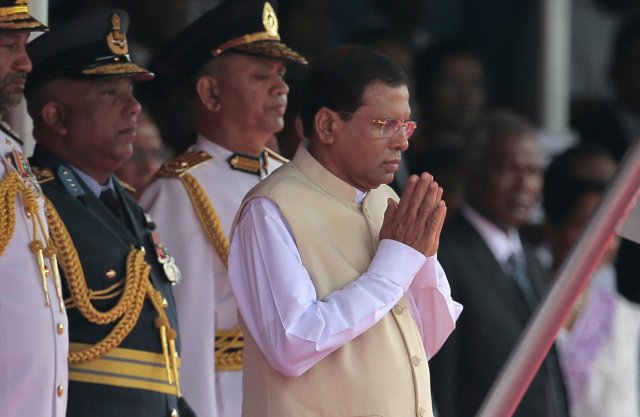
The Refugee Action Collective held a public meeting in Melbourne on February 23 to discuss the situation in Sri Lanka after the January 8 presidential election, at which Maithripala Sirisena defeated incumbent president Mahinda Rajapaksa.
Trevor Grant, the author of Sri Lanka’s Secrets: how the Rajapaksa regime gets away with murder, told the meeting that Sirisena had been a member of Rajapaksa’s cabinet for 10 years.
He was acting defence minister in May 2009, in the final days of the war, when the slaughter of Tamils by the Sri Lankan armed forces was at its height.
Since coming to power, Sirisena’s has outlined a “100 day plan” that says nothing about ending the oppression of Tamils. The military occupation of Tamil areas is still being maintained, as evidenced by the presence of one soldier for every five civilians in Tamil areas. The Prevention of Terrorism Act, which allows detention without trial, is being maintained and thousands of Tamil prisoners remain in secret camps.
Grant said that Sirisena’s break with Rajapaksa was orchestrated by the US and India, who were concerned about Rajapaksa’s close relationship with China. Following Sirisena’s election, a US-sponsored United Nations investigation of war crimes in Sri Lanka has been “put on the backburner”.
A report that was due to be presented to the UN Human Rights Council in March has been delayed for six months.
Aran Mylvaganam, a Tamil man who fled Sri Lanka as a child, said that for Tamils, “there is no change in Sri Lanka’s genocidal agenda”, citing the heavy military presence in Tamil areas and the continued imprisonment of thousands of Tamils.
Mylvaganam outlined the history of Australian government support for Sri Lanka’s oppression of Tamils. In 2006, Australian police raided 300 Tamil homes, with the aim of silencing Tamils living in Australia. The Australian Security Intelligence Organisation works closely with the Sri Lankan government. More than 1500 Tamils seeking asylum in Australia have been forcibly returned to Sri Lanka, many without being given a chance to explain the reasons why they fled.
Mylvaganam spoke about the importance of solidarity work, including exposing the crimes of the Sri Lankan government, calling for the release of political prisoners, and supporting those campaigning for information about the fate of the disappeared.
Trevor Grant spoke about his recent visit to refugee camps in India, which he described as “horrendous”. The refugees are denied Indian citizenship and are subject to a curfew. They have no work rights, but many work illegally to survive. Many die on building sites, and some women are used as sex slaves.
Like the article? Subscribe to Green Left now! You can also like us on Facebook and follow us on Twitter.